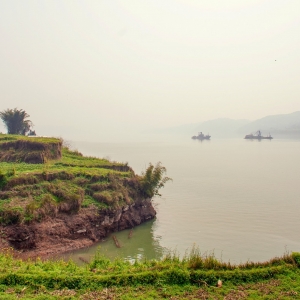The Stream, January 28, 2021: FEMA Plans To Fund Billions Into Climate Disaster Prevention
YOUR GLOBAL RUNDOWN
- A Biden administration proposal would fund billions of dollars for climate adaptation in the United States.
- Aid workers in Mozambique warn of Covid-19 spreading through temporary displacement camps after Cyclone Eloise.
- A mining company in Canada faces charges for violating environmental laws.
- Residents exposed to PFAS in a North Carolina community’s drinking water supply could experience compounding effects from the coronavirus.
A settlement has been brought to court to remove lead service lines in Newark, New Jersey.
“NEW (Newark Education Workers) Caucus and other residents stood up to fight for safe drinking water in Newark, securing an extraordinary victory for generations of kids who will live healthier, better lives because they won’t be drinking leaded tap water. Newark’s aggressive lead service line replacement program, at no direct cost to residents, could serve as a model for the nation once it is completed.” – Erik Olson, senior strategic director for health at the Natural Resources Defense Council (NDRC). NJ Today reports that a proposed settlement agreement to secure safe drinking water protection in Newark, New Jersey was submitted to federal court Tuesday. The settlement is the product of a lawsuit brought against the city in June of 2018 by the NEW Caucus and NDRC. The terms of the agreement do not ask for any monetary compensation but include demands that the city must replace all identifiable lead service lines at no direct cost to residents and must continue supplying free drinking water lead testing and lead filters to residents, amongst several other key terms.
IN RECENT WATER NEWS
Speaking of Water: China’s Water Challenges in 2021
What are the trends, hurdles, and big ideas for water in China in 2021?
Domestically, the country’s leaders will respond to record-breaking floods in the southern provinces, advocate for water-absorbing “green” infrastructure, and contend with polluted water.
In foreign affairs, tensions in the Mekong River over dams and water supply will be tested by a new regional data-sharing agreement, while the Chinese government and state-owned companies pursue water-intensive infrastructure developments on other continents as part of the Belt and Road Initiative. At the same time, the dawn of the Biden administration will introduce a new dynamic in the U.S.-China relationship. Will that signal a return to Obama-era cooperation on climate, energy, and water?
To discuss these and other topics Circle of Blue reporter Brett Walton spoke with Scott Moore, the director of China Programs and Strategic Initiatives at the University of Pennsylvania, and Jennifer Turner, the director of the China Environment Forum at the Wilson Center.
In Case You Missed It:
‘Mass Aging’ of Dams a Global Safety and Financial Risk, UN Report Says – Countries ought to plan for end-of-life care, report argues.
HotSpots H2O: Research Finds High Levels of PFAS Contaminants in Chinese Drinking Water – Drinking water for millions of people in China has unsafe levels of PFAS toxics, according to a study released by Tsinghua University earlier this month.
Aid Workers Warn of Covid-19 Spread Among Displaced Mozambique Residents
Aid organizations in Mozambique are warning residents about the spread of Covid-19 after Cyclone Eloise displaced thousands of residents last weekend, Reuters reports. Staff from ActionAid Mozambique say they witnessed overcrowding and a lack of water, sanitation, and proper PPE in temporary camps for displaced residents. The cyclone worsened the situation for thousands of others still recovering from Cyclone Idai, which hit the area in March of 2019.
In context: In Pandemic, New Thinking on Responding to Weather Disasters
TODAY’S TOP WATER STORIES, TOLD IN NUMBERS
$10 BILLION
The New York Times reports that the Biden administration has proposed funding as much as $10 billion for the Federal Emergency Management Agency to prevent climate disasters. The plan would repurpose a portion of the agency’s overall disaster spending towards projects designed to pre-emptively protect against damage by building seawalls, elevating or relocating flood-prone homes. The proposal marks an effort by the Biden administration to address climate adaption and speaks to the administration’s rapid overhaul of policies set under former President Donald Trump.
32 CHARGES
Atlantic Mining NS Inc., an Australian gold mining company, has been charged in Nova Scotia, Canada for violating the province’s Environment Act, CBC reports. The mining company faces 32 charges for allegedly breaking “conditions of an approval” and exceeding regulatory discharge levels between February 2018 and May 2020. The company’s request to postpone the case until early March was granted, when it will enter a plea.
ON THE RADAR
Residents exposed to PFAS chemicals in drinking water in southeastern North Carolina are experiencing compounding effects from the Covid-19 pandemic, The Daily Tarheel reports. The chemicals, known as GenX, are suppressing residents’ immune systems and causing other health issues and could reduce antibody responses to the coronavirus vaccine, according to the Centers for Disease Control and Prevention. Removing PFAS chemicals from the Cape Fear River, which supplies the area’s drinking water, has been an ongoing issue for decades. Local activists have pushed for funding from the North Carolina Department of Environmental Quality to supply low-income residents with filters but have so far been denied.
In context: EPA Investigates Chemical Contamination of North Carolina River
Jane is a Communications Associate for Circle of Blue. She writes The Stream and has covered domestic and international water issues for Circle of Blue. She is a recent graduate of Grand Valley State University, where she studied Multimedia Journalism and Women, Gender and Sexuality Studies. During her time at Grand Valley, she was the host of the Community Service Learning Center podcast Be the Change. Currently based in Grand Rapids, Michigan, Jane enjoys listening to music, reading and spending time outdoors.






Leave a Reply
Want to join the discussion?Feel free to contribute!